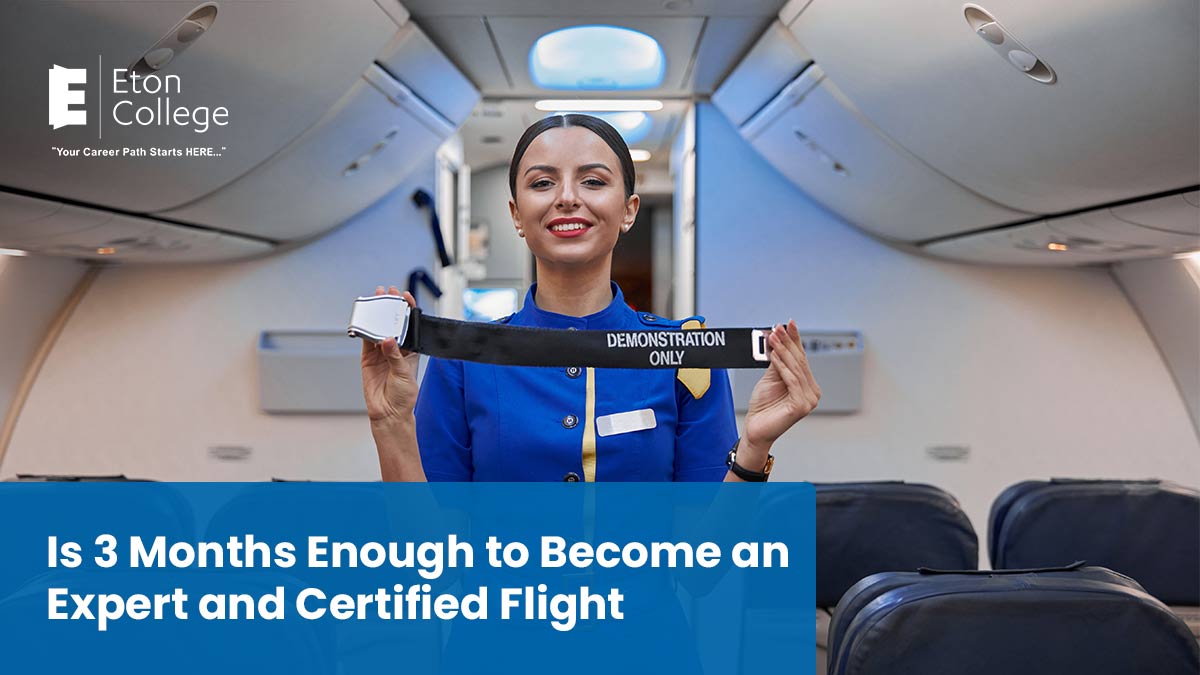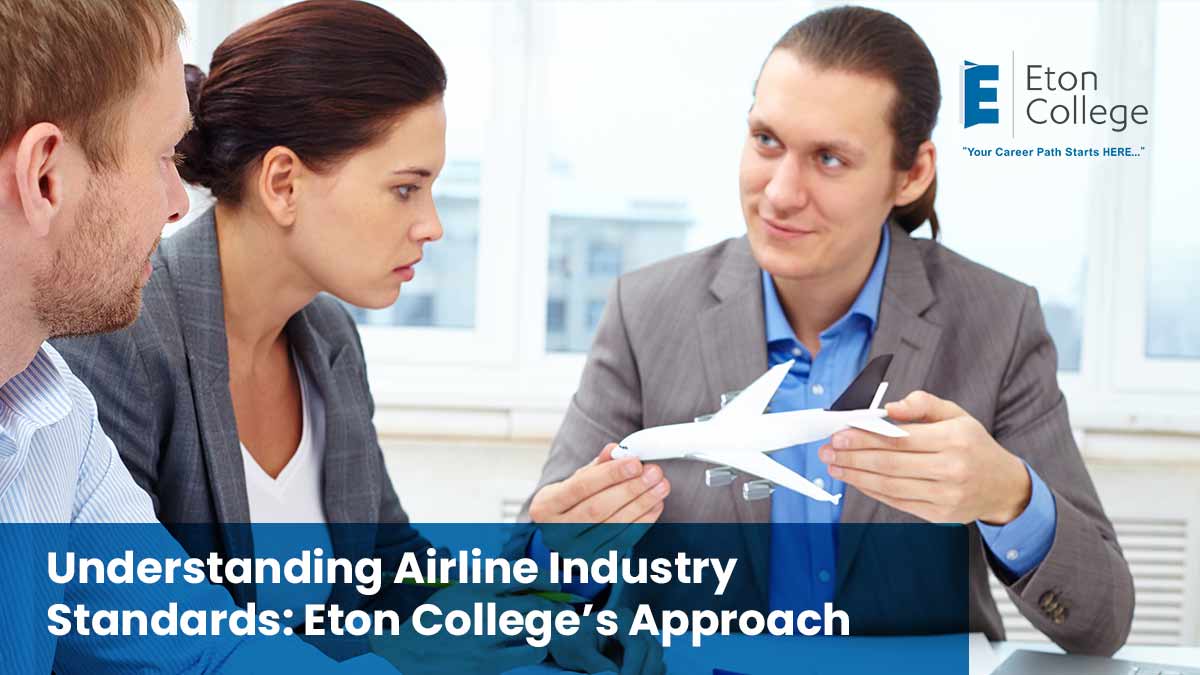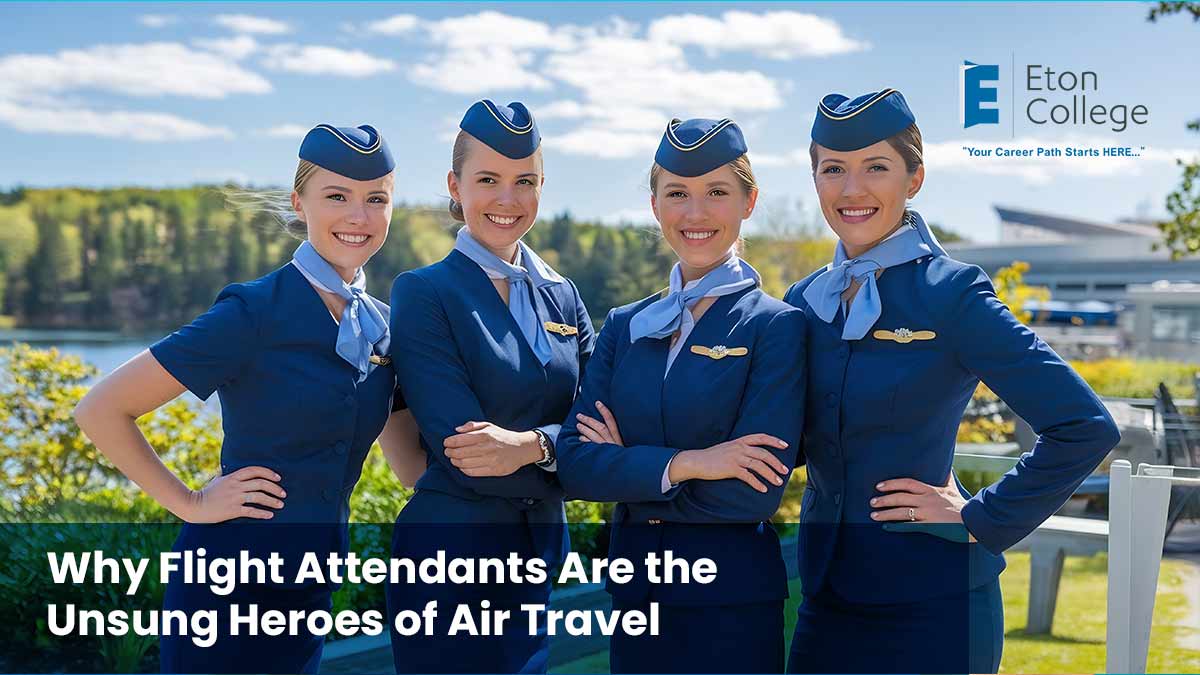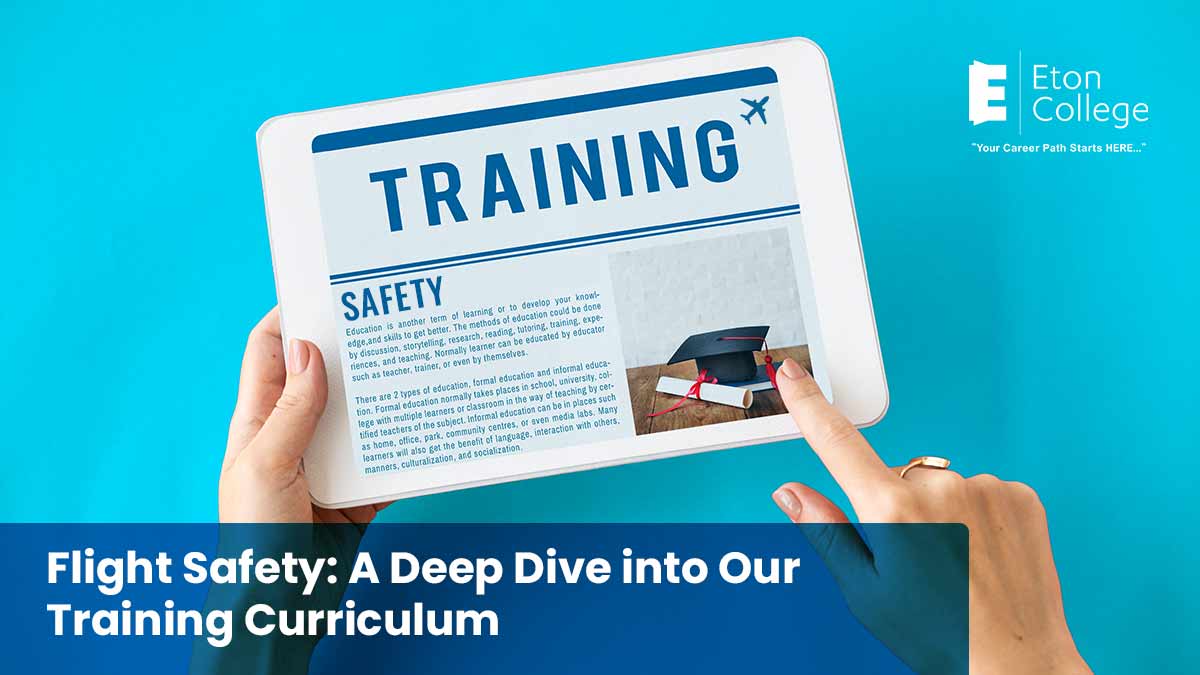- Flight attendant training in Canada usually lasts 4 to 8 weeks, though comprehensive programs like Eton College’s can extend to 14 weeks.
- Airline requirements, program scope, personal learning pace, and regulatory changes all influence the duration of flight attendant courses.
- Practical exercises, airport visits, and simulated scenarios provide students with real-world exposure.
A career as a flight attendant in Canada offers a unique blend of travel, adventure, and personal fulfillment. It’s an opportunity to explore new cultures, meet people from all walks of life, and contribute to the seamless operation of the aviation industry. One of the most common questions prospective flight attendants ask is about the duration of the required training programs. While there can be some variation, most flight attendant courses in Canada typically last 8 weeks or more.
Factors Affecting Flight Attendant Course Duration
Airline Requirements
- In-House Training: Some airlines offer their own training programs, tailored to their specific operations and standards.
- External Partnerships: Other airlines may partner with external training providers, which can affect the course length and curriculum.
- Company Culture: The airline’s culture and values can also influence the training requirements and expectations.
Program Scope
- Core Flight Attendant Duties: Basic programs focus primarily on essential skills like safety procedures, customer service, and in-flight service.
- Expanded Curriculum: More comprehensive programs may include additional modules such as aviation history, cultural sensitivity, or leadership development.
- Specializations: Some flight attendant course may offer specialized training in areas like first aid, medical emergencies, or handling passengers with disabilities.
Individual Learning Pace
- Natural Aptitude: Students with a natural aptitude for learning may progress more quickly through the course.
- Prior Knowledge: Students with relevant experience or education may find certain topics easier to grasp.
- Language Proficiency: Fluency in English and French, the official languages of Canada, can significantly impact learning speed.
- Personal Commitment: A strong commitment to learning and a positive attitude can contribute to faster progress.
Regulatory Changes
Industry Updates: Changes in aviation regulations or industry standards may necessitate updates to training programs, potentially affecting their duration.
A Comprehensive Journey to Aviation Excellence
Eton College’s Flight Attendant Preparation Program (FAPP) is a meticulously crafted flight attendant course designed to equip aspiring flight attendants with the essential knowledge and skills required to thrive in the dynamic aviation industry. This comprehensive program offers a transformative experience that prepares students for a successful career in the skies.
Students choosing FAPP at Eton College can benefit from the following:
- Comprehensive Curriculum: The flight attendant course offers a wide range of topics, ensuring students are well-versed in all aspects of flight attendant duties, from safety procedures to customer service and in-flight service.
- Industry-Relevant Training: Experienced instructors with real-world aviation expertise bring their knowledge and insights to the classroom, providing students with practical guidance.
- Hands-On Experience: Through simulated scenarios and practical exercises, students gain valuable experience in applying their knowledge in real-world situations.
- Diverse Career Opportunities: Graduates of the FAPP program are well-prepared to pursue various roles within the aviation industry, including flight attendants, in-flight service managers, cabin crew trainers, and more.
- Essential Certifications: The FAPP program includes First Aid and CPR/AED certification, ensuring students are equipped to handle emergencies and provide assistance to passengers.
- Supportive Learning Environment: The dedicated team of instructors and staff at Eton College create a supportive and conducive learning environment where students can thrive.
- Prime Location: Located in Vancouver, a major aviation hub, the program offers convenient access to industry resources and networking opportunities.
- Career Development: Eton College provides personalized guidance and support to help students build successful careers in aviation.
Skill Development
Eton’s flight attendant course focuses on developing both hard and soft skills essential for success in the aviation industry:
Hard Skills: Expertise in safety and emergency procedures, language proficiency, and First Aid and CPR/AED certification.
Soft Skills: Embracing diversity, teamwork, adaptability, and flexibility.
Transferable Skills: Resource optimization, leadership, and time management.
Supplementary Activities
First Aid Certification:
One of the most important skills for flight attendants is the ability to provide first aid in emergency situations. To ensure that students are well-prepared, Eton College offers the opportunity to obtain First Aid certification through the Canadian Red Cross. This certification covers a wide range of first aid techniques and procedures, enabling students to respond effectively to medical emergencies on board aircraft.
To make this certification more accessible, Eton College generously covers 75% of the cost, making it a valuable opportunity for students to enhance their skills without a significant financial burden.
YVR Airport Visits:
To provide students with practical exposure to airport operations, Eton College organizes visits to Vancouver International Airport (YVR). These visits offer a unique opportunity for students to observe firsthand how airports function, from passenger check-in to boarding procedures and aircraft operations.
By visiting YVR, students can gain a better understanding of the aviation industry and the various roles played by airport staff. This experience can also help students develop a sense of familiarity with airport environments.
The duration of flight attendant courses in Canada typically ranges from 4 to 8 weeks. However, factors such as airline requirements, program scope, and individual learning pace can influence the length of training. For those seeking a more comprehensive and in-depth program, Eton College offers a 14-week course that provides extensive training and preparation for a successful career as a flight attendant.




